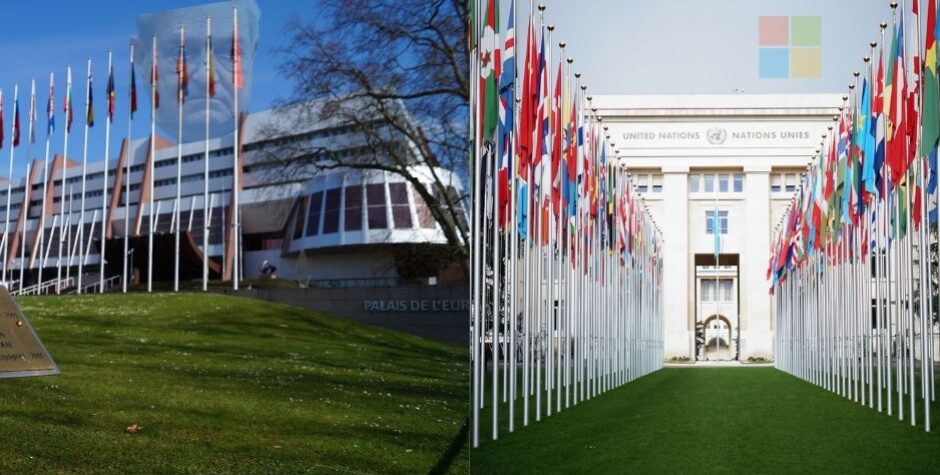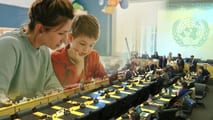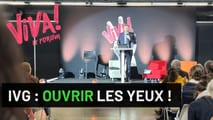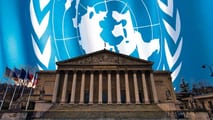

How Soros’ Open Society and Microsoft Invest in the Council of Europe & the United Nations
OSF & Microsoft Invest in the UN & CoE
VA: Six months after revealing the European Court of Human Rights (ECHR) Soros scandal, you now show that the Council of Europe on which the ECHR depends was itself funded by the Open Society and Microsoft (Interview originally published in Valeurs Actuelles in French).
Grégor Puppinck: Indeed, reading the annual financial reports of the Council of Europe, it appears that George Soros' Open Society and Bill Gates' Microsoft are the two largest private donors to the organization. These two organizations have respectively given the Council of Europe nearly €1,400,000 between 2004 and 2013 and nearly €690,000 between 2006 and 2014. The Open Society also supports Council of Europe initiatives, including the European Institute for Roma Arts and Culture. Since 2015, there is no longer any trace of such direct funding, however, the Council of Europe has established a special fund to receive such extra-budgetary voluntary contributions.
These payments have not failed to raise questions, for it is surprising that an intergovernmental political organization should be so permeable to private funding. A member of the Council of Europe referred the matter to the Committee of Ministers to ask its 48 ambassadors to make public all the documents relating to this financing.
More generally, is this a questioning of the financing of international bodies by a few large NGOs and foundations?
It is true that the problem is not only for the Council of Europe, but also for the International Criminal Court, which received $115,000 from the Open Society in 2017, and even more for the WHO and even the UN. The Gates Foundation is the second largest funder of the WHO after the United States, with a contribution of $530 million in 2019. 80% of WHO's budget is based on voluntary contributions, i.e. donations from foundations and governments. This mode of financing obviously calls into question the political independence of these organizations.
These large international organizations are prime targets for those who want to exert global political influence, as they have considerable power but fewer financial resources than their ambitions. These organizations are therefore vulnerable to "philanthropic billionaires" who seek to exert global political influence. This political influence can be exercised, as you will have noted, without any recourse to democratic mechanisms or controls. In order to preserve or restore the independence of these large international organizations, it is therefore imperative to examine and clarify their funding methods.
Can we speak of a phenomenon of entryism of certain large NGOs into international organizations?
We observe not only a phenomenon of entryism, but also of collusion which can be explained when we consider the financial power of these NGOs: let us recall that the Open Society has been endowed with $32 billion which it has donated back and invested in the sector of human rights, media and politics since 1984. The problem is not limited to the Open Society; it also concerns other large private foundations, such as the Gates, Ford or Oak Fondations. This was precisely and brilliantly explained in Gaétan Cliquennois' recent book on the privatization of human rights (Cambridge, 2020).
The former Secretary General of the Council of Europe, Thorbjørn Jagland referred to Georges Soros as his "good friend", while the Commissioner for Human Rights, Nils Muižnieks, was the director of programs of the Open Society until he took office at the Council of Europe in 2012. In 2009, he explained that the Open Society wanted to create a new man - homo sorosensus [referring to Soros] - the man of the open society.
The influence of this network is now being illustrated in a public and debonair way. Many leaders like to show their closeness to the Soros, father and son. This is the case, for example, of Jean-Claude Juncker, President of the European Commission, or Michelle Bachelet, United Nations High Commissioner for Human Rights since 2018, photographed with Georges Soros and his son as soon as she took office.
What about the follow-up to your report on the influence of Soros' NGOs on the ECHR?
This report (available here) has had a huge impact in Europe and around the world; it has been taken up by several governments and many politicians. This is notably the case of Russia and Bulgaria. I have the feeling that public opinion is now informed and sensitized. This report proves that over the last ten years, 22 of the 100 permanent judges of the Court have come from seven NGOs active in the Court, and that 18 of them have sat in cases involving "their" NGO, in violation of the basic rules of judicial ethics. Among these seven NGOs, the Open Society network stands out for the number of judges linked to it (12) and for the fact that it funds the six other organizations cited in the report.
However, this report met up with the embarrassed silence of the institution. The ECHR informed the newspaper Le Monde of its decision not to respond to it. Three deputies of the Council of Europe then referred the matter to the Committee of Ministers, targeting "the systemic problem of conflicts of interest between NGOs and judges of the ECHR" (read here) and questioning it on the means to be implemented to "restoring the integrity of the European Court of Human Rights" (read here). Unsurprisingly, the 48 ambassadors seem to be struggling to agree on a response, as they have far exceeded the three-month deadline set for this procedure. They have an obligation to respond in writing, if only to express their inability to respond.
What about the Brussels instances that have also been seized?
Numerous deputies from various political parties wanted to take up this subject, but the health crisis upset the agendas. However, several members of the European Parliament have also addressed parliamentary questions to the European Commission and the European Council.
The European Commission responded through one of its vice-presidents, Věra Jourová: "The Commission has no doubts about the integrity and independence of the European Court of Human Rights". Move along, there's nothing to see here! Except perhaps for a few photos that help us understand the context in which these answers are given. On one, we can see Commissioner Jourová with the Hungarian philanthropist declaring that "the values of Open society are at the heart of the EU's action". On another photo, European Commissioner Johannes Hahn - author of another response - also poses with George Soros, stating that "it is always good to meet George Soros to discuss our joint efforts to accelerate reforms and open societies in the Balkans and Eastern Europe".


In fact, these photos are spectacular but not extraordinary, as between 2014 and 2018, George Soros and his lobbyists have had no fewer than 64 interviews with Commissioners and senior officials of the European Commission; more, it seems, than the European heads of state.
All these factual elements should open our eyes to the considerable importance of these networks of influence and power over national political institutions. The ECLJ's Report on NGOs and the ECHR set the cat among the pigeons, it exposed and proved the reality of this collusion within the specific framework of the ECHR, but it is not enough. While any national jurisdiction would have reacted firmly, to sanction the magistrates in question and correct the system, the European authorities are turning their backs and waiting for the people to think about something else. There is no desire to question the system. It is frightening.
How do you explain this lack of questioning?
The links between international bodies and the large NGOs and foundations are too deep and too close; it's the same power system: there is a symbiosis between them, both financially and ideologically, and even humanly. But this relationship of complementarity is distorted and unbalanced by the intervention of philanthropic billionaires who pursue political, economic and financial objectives. The system is perverted by this "privatization of human rights".
Were you subject to retaliations following your revelations about Soros' hold at the ECHR?
Not immediately, except for an article in Le Monde. On the other hand, we are now regularly the target of media attacks. The last, and most important, was orchestrated by the organization Open democracy, a member of the Soros galaxy, with the support of abortion lobbies. A few weeks ago, this organization published a pseudo-investigation against the ECLJ which was simultaneously relayed in about fifty newspapers around the world, including Time Magazine and EuroNews. Open democracy mobilized "Tracking the Backlash," its own informal network of activist journalists created to "track the [conservative] backlash". Their goal is to smear the digital reputation of their political opponents. According to all these articles, the ECLJ is a major threat, calling its lawyers "crusaders" and "secret army" and "infiltrating our democratic institutions" like "wolves in sheep's clothing". The organization's statements are obviously outrageous, as was its call last March to "abolish the family," but they all demonstrate the power of these networks.
This type of attack confirms, if proof were needed, the need to objectively expose the networks of power that constitute the new system of governance, both global and post-democratic.












